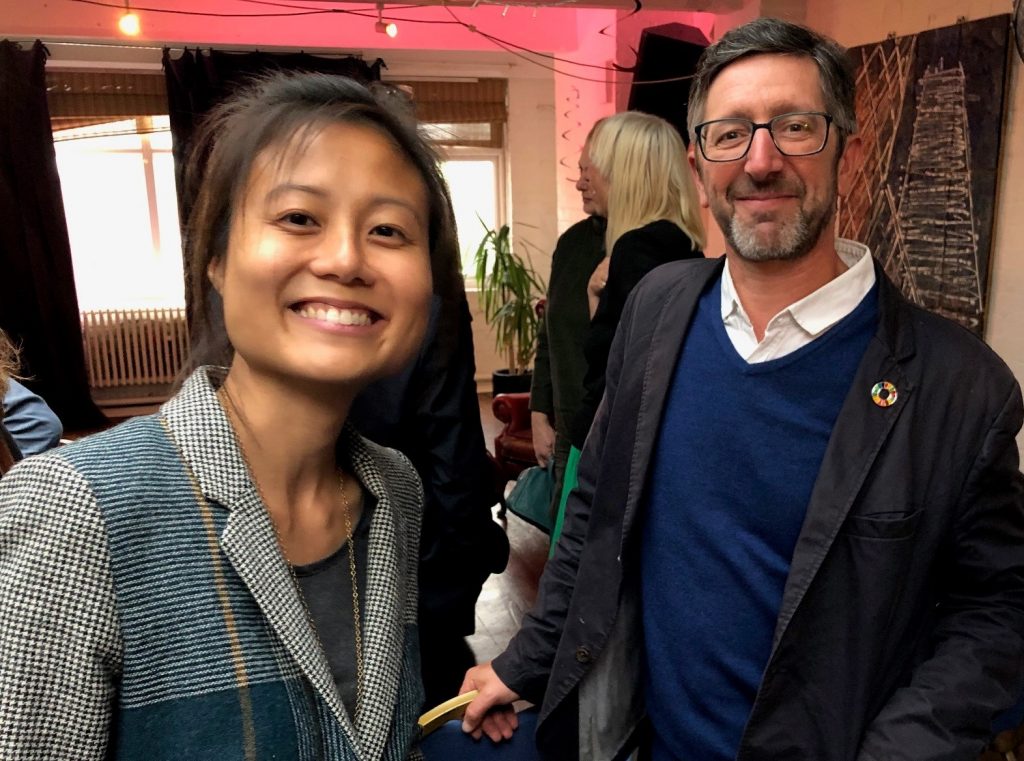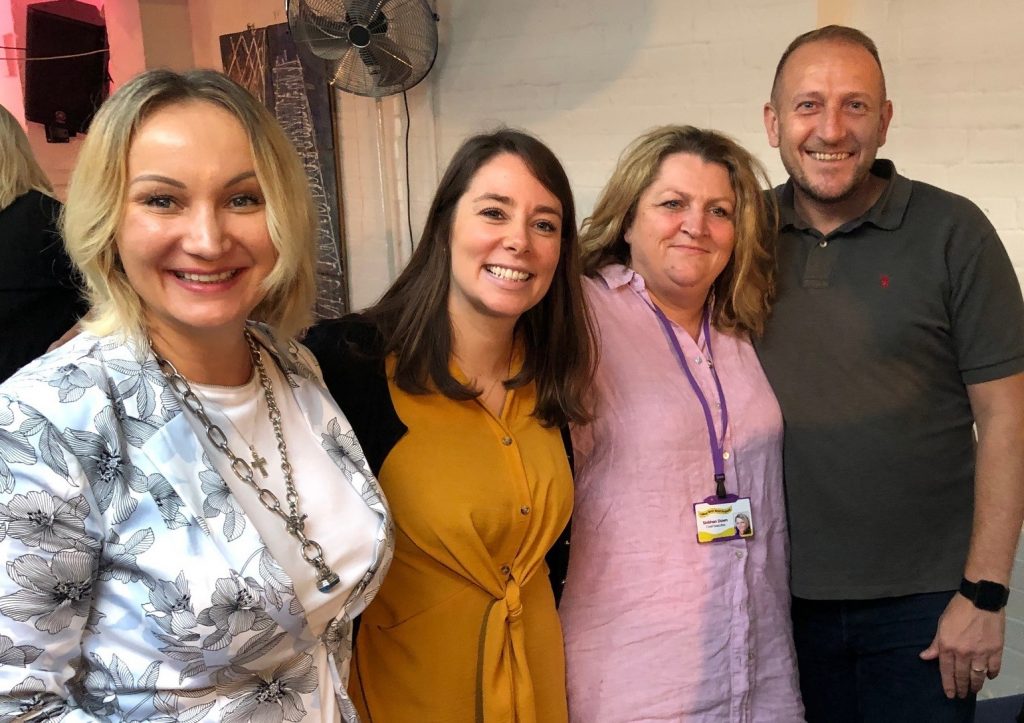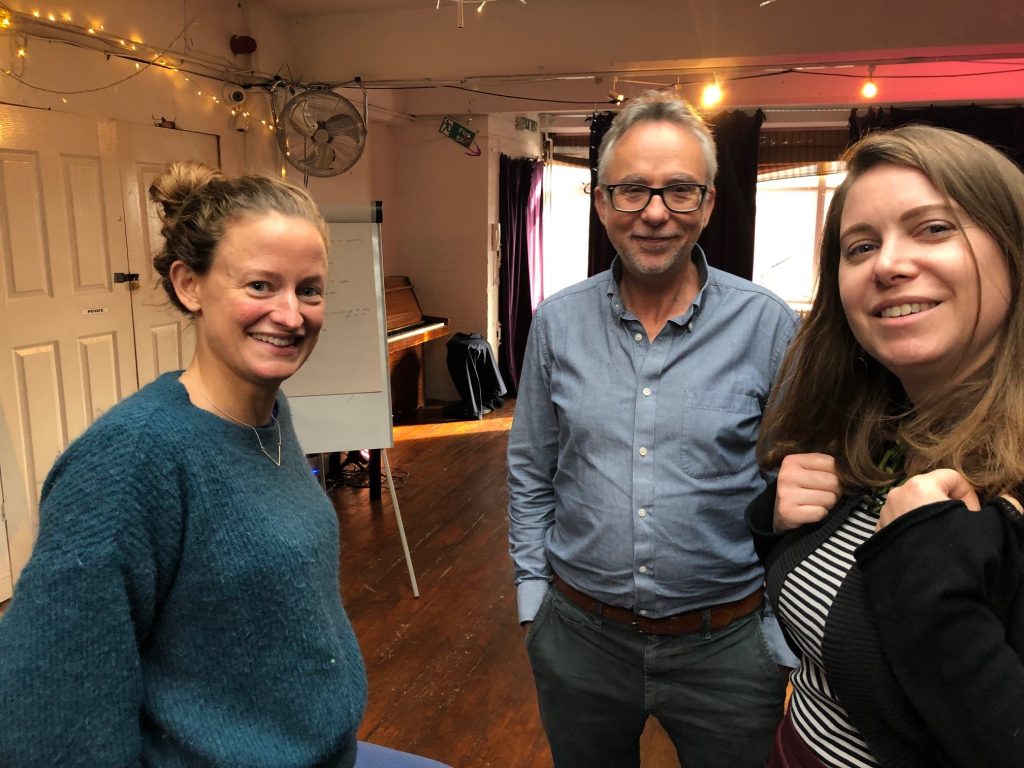Five quick tips on leadership when you’re scaling
3 Oct 2019
Being the leader of a well-established social enterprise or charity is a very different ballgame to when you’re just starting up. That’s why we created a programme for people who are scaling and managing larger organisations: Scale+Accelerate, supported by the Postcode Innovation Trust (a grant-giving body funded entirely by players of People’s Postcode Lottery).
CEOs, founders and managers who have just completed the programme shared some of their light-bulb moments at a celebratory graduation event this week, in a cosy chat with our CEO Ali Wilson.
Here’s what we learnt…
1. Stop sacrificing, start celebrating
Darren Brady, SSE fellow and founder of The Quest, hosted the event. He cautioned against “becoming a martyr” to your project. “Sometimes the attachment can be negative.”
Be mindful of your own wellbeing. It’s all too easy to be in doing-mode all the time, feeling like you have to keep pushing on to reach the next goal at all costs. But you will run yourself into the ground if you don’t make time to step back and recognise what you’ve done so far.
Darren urged the group to reflect regularly. You can boost motivation in as little as 10 minutes: step away from the day-to-day to share an achievement with your co-founder, board or team.

SSE encourages celebration! We laid on this graduation event to congratulate the brilliant social-sector leaders who have just completed Scale+Accelerate
2. Know what you’re sh*t at!
Playing to your strengths is a no-brainer for success and wellbeing. But it’s not always easy to admit your weaknesses – especially when you’re busy trying to impress those around you all the time.
You need to get over this and be honest, was the advice we heard. “Know what you’re sh*t at!” as our CEO Ali put it.
As your organisation grows, you have the luxury of being able to appoint people who excel in the areas you struggle with – and so you should. “Let other people lead in areas they’re better at,” as one of our SSE fellows explained.
Siobhan Down, CEO of the Yellow Brick Road Project, summarised it perfectly: “You’re like the composer of an orchestra. You can’t play all the instruments yourself!”

More of the inspiring social entrepreneurs and charity leaders who took part, including Siobhan Down, second from right
3. Facing a major issue? Be honest – but intentional – about sharing it
At some point in your journey as a leader, you’re going to hit a chasm that seems unpassable. Perhaps you’ve realised you face a major cash-flow shortage, and you can’t see how to pay next month’s salaries. Or something in the external environment has shifted, and you recognise that you won’t survive in a year’s time if you carry on with the status quo.
In times like this, most social entrepreneurs default to not telling anyone, for fear of unsettling the team and seeming like you’ve failed. Our CEO Ali says this used to be his response to crises. But carrying a huge burden alone as a leader erodes your wellbeing – and your ability to sleep.
Ali says he’s learnt over the years who on his board and senior management team he should turn to in sensitive situations. “It’s about learning who can handle the information, as well as them being able to do something with it.”
He has become “much more candid” over the years, and notes that trust between a CEO and their board are especially important during tricky times.
4. Say no as you grow
Our SSE fellows discussed the shift you have to make in your approach as your organisation grows.
“At first, you need to be opportunistic and light on your feet to grab every opportunity that pops up,” explained Marnie Rose, founder of the Garden Classroom, who has just completed the programme. “But as things evolve, you need to get more strategic.”
Learning to be selective and stay on-track is key, as things necessarily get more structured. In the words of Warren Buffett: “The difference between successful people and really successful people is that really successful people say ‘no’ to almost everything.”
5. Learn to ask for help

We get by with a little help from our friends
“It’s really hard to ask for help,” admitted one of our SSE fellows. “It’s basically a pride thing. But you have to be able to it!”
You need to develop a network of peers, so you can turn to people outside your organisation confidentially when you need a sounding board.
People completing the programme said opportunity to share issues with a trusted group was invaluable. “It’s hard trying to pretend everything is fine all the time when you’re dealing with real issues,” one said. “There are things you can’t divulge to your trustees, even. That’s the incredible value of this programme. I can bring those things to this group, and get peer-learning, and know they’ll help me navigate.”
By Sophie Hobson, SSE’s head of communications. Chat to her @sophiehobson
Looking for learning and funding as you scale? Want to develop a safe space to work through issues with peers?
Register interest for our next Scale Up programme
